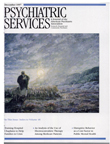Recollections of Sexual Abuse: Treatment Principles and Guidelines
Dr. Courtois has written an authoritative and comprehensive book on the legal and clinical aspects of trauma therapy, childhood sexual abuse, and recovered memory. The author was a member of the American Psychological Association's working group on the investigation of memories of childhood abuse and is the author of a landmark 1988 book, Healing the Incest Wound (1). She is eminently qualified to write on the subject matter of this volume.
Dr. Courtois reviews the history and sociology of the false-memory controversy, then summarizes the current research literature on amnesia for childhood sexual abuse. In a balanced fashion, she reviews and analyzes the arguments on both sides of the controversy.
The bulk of the book is devoted to treatment guidelines and standards of care. Dr. Courtois describes three generations of trauma treatment models, the first being more focused on abreaction and catharsis; the second on containment, safety, pacing, and grounding; and the third on complexities of memory and therapeutic neutrality. Each generation of model builds on and contains what went before. I would like to have seen more emphasis on attachment models of trauma therapy; otherwise this discussion is comprehensive.
The current consensus treatment model outlined by Dr. Courtois is a sound representation of the state of the field. Important lessons and cautions have been incorporated from the false-memory side of the ideological war concerning recovered memory and trauma therapy. The book will be an important force in moving discussion toward a constructive middle ground and away from extreme polarization. It is clear that Dr. Courtois writes and practices from the perspective of the clinician treating individuals who recover memories. It is equally clear that she has listened carefully and thoughtfully to criticisms from skeptics.
The final chapter is the richest and most compelling. It contains ten case histories that communicate the complexity and variety of problems and presentations in the arena of recovered and continuous memory of childhood sexual abuse. No simple formula can cover all the permutations, and there can be no monolithic treatment plan.
Readers of the book, expert witnesses, and the public must understand that Dr. Courtois has written an authoritative, comprehensive, excellent book that is nevertheless not a piece of legislation. Her intention is to define an emerging consensus, not a final conclusion set in stone. Recollections of Sexual Abuse: Treatment Principles and Guidelines is important both for its content and for the intellectual processes it exemplifies, which are scholarship, dispassionate analysis, and good clinical judgment. The book is essential reading for anyone interested in the subject matter.
Dr. Ross is president of the Colin A. Ross Institute for Psychological Trauma in Richardson, Texas.
1. Courtois CA: Healing the Incest Wound: Adult Survivors in Therapy. New York, Norton, 1988Google Scholar



